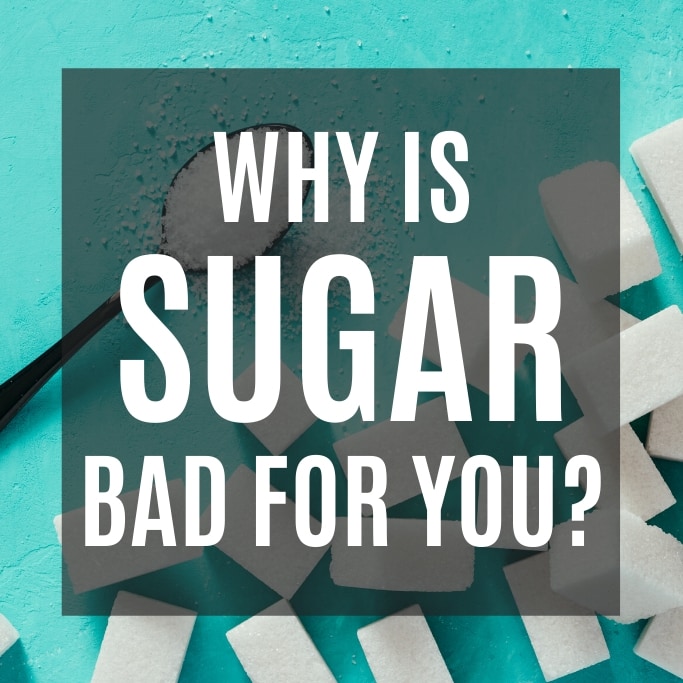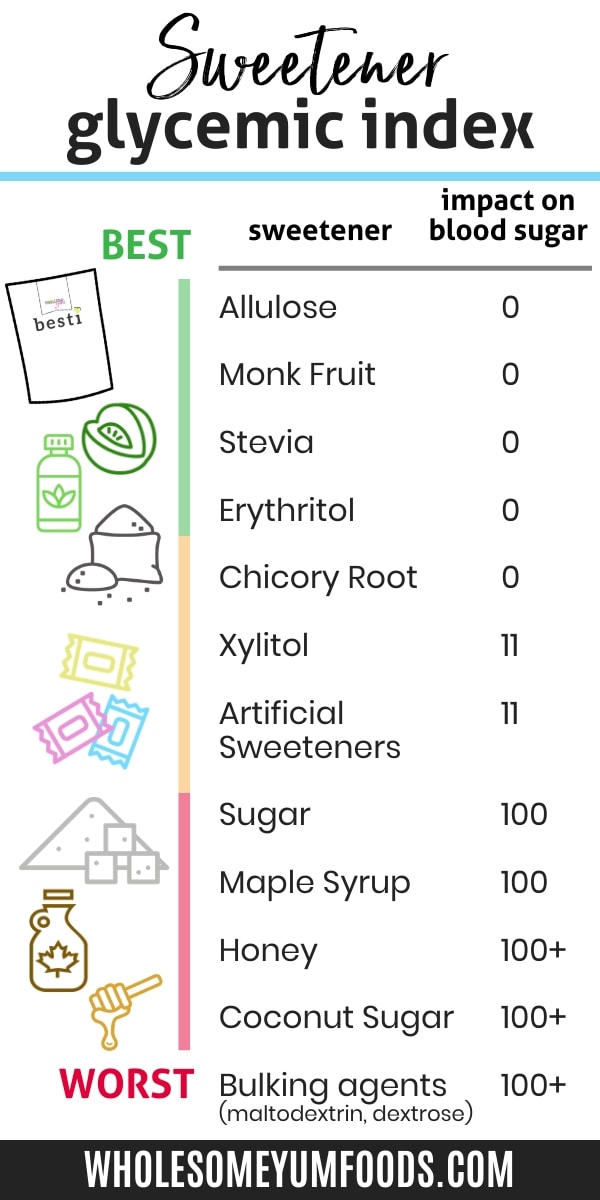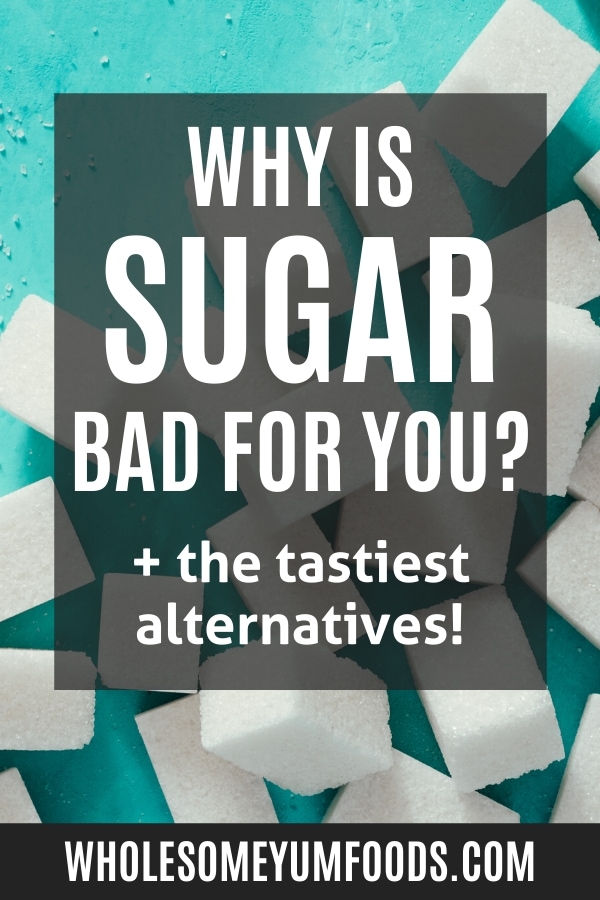Why Is Sugar Bad For You?
Is sugar bad for you? And why? What about natural sugar, artificial sweeteners, and natural alternatives? Learn why sugar is bad and what to use instead.

You’ve heard people say “sugar is bad for you” — especially if you follow a keto or low carb diet. But why is sugar so bad for you, and what are the benefits to choosing sugar-free sweeteners instead?
If you’ve ever wondered how much sugar you really eat, what effects sugar can have on your body, or the best ways to steer clear of sugar, this article is for you.
How much sugar do people eat?
In general, people eat more sugar than ever before. Americans in 1776 enjoyed about 6 pounds of sugar in a given year; today, we consume an average of 130 pounds a year! [*]
We can blame part of the spike in sugar consumption on the amount of processed food available to us. Sugar is inexpensive, acts as a preservative, improves food texture, and makes everything taste good — so you can find it hidden in just about everything, too.
If your diet includes lots of processed food, you might eat more sugar than you realize. But is sugar really that harmful for your health?
Why is too much sugar bad for you?
Research links sugar with an abundance of health issues — some you might not expect!
It makes sense that eating too much sugar can alter your body’s ability to process it, causing conditions such as type 2 diabetes [*] or tooth decay [*].
However, sugar consumption is also linked with these health conditions, among many others:
- Obesity [*]
- Heart disease [*]
- Risk for certain cancers [*]
- Acne [*]
- Aging [*]
- Impaired memory [*)]
- Depression risk [*]
- Fatty liver disease [*]
Not to mention: Eating sugar makes you want to eat more sugar, and causes sharp peaks and valleys in your energy levels [*]. There must be a better way!
Avoiding sugar is a huge step you can take toward better health. If you still want to enjoy sweet flavor without the side effects, you’ll need to know the best alternatives.

Is natural sugar bad for you?
Many people are aware that white sugar is bad for you. But what about natural sweeteners? Are honey, maple syrup, coconut sugar, or agave any better than sugar?
Unfortunately, not by much.
Although they come from natural sources, sweeteners such as honey, agave, coconut sugar, or maple syrup can still cause the same effects in your body as plain white sugar.
While they may contain other nutrients or absorb more slowly in your body, these sweeteners can lower insulin sensitivity or spike your blood glucose. If you’re looking to skip sugar, you’ll want to skip these alternatives as well.
For anybody following a standard, balanced diet, sugar may have an appropriate time and place. Life happens!
However, if you follow a low carb diet (or simply want to avoid the negative effects of sugar altogether), you’ll want to find an alternative.
Check out the glycemic index of different sweeteners below…
Is fake sugar bad for you?
People often call artificial sweeteners “fake sugar”. But are artificial sweeteners a good sugar alternative?
If you think the sweeteners in yellow, blue, or pink packets make a safe sugar substitute, think again. These sweeteners (including sucralose, aspartame, and saccharin) are all created in a lab.
These chemical sweeteners currently have GRAS status in the United States, which stands for “Generally Recognized As Safe”. considered safe for consumption. However, new research shows they may harm your “good” gut bacteria [*, *], which can make you more susceptible to immune or digestive disorders.
But what if you are referring to natural sugar-free sweeteners as “fake sugar”? Are these better sugar substitutes?

What are the best sugar alternatives?
I started Besti because I wanted all the flavor of sugar without the negative effects. Besti features well-researched and safe sweeteners, including erythritol, allulose, and monk fruit.
Besti sugar-free sweeteners:
- Are made with 100% natural ingredients
- Won’t spike your blood sugar
- Contain 0 net carbs
- Cook, taste, and bake like sugar
- Take it easy on your tummy
Give them a try — you might find you can take sugar off the table altogether.




